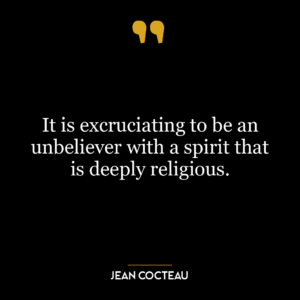This quote suggests that true material success does not contradict or hinder the fulfillment of religious duties. In other words, Gandhi believed that one can be materially prosperous while still being religiously devout. This is a significant statement as it challenges the common notion that material wealth and spiritual wealth are mutually exclusive.
Gandhi’s perspective aligns with the concept of ‘dharma’, a key principle in Indian philosophy, which refers to the moral and ethical duties and responsibilities that individuals must follow to live a good and fulfilling life. He implies that material wealth can be a part of a righteous life if it is earned and used in ways that align with one’s religious and ethical obligations.
Applying this idea in today’s world, it suggests that one’s pursuit of material success should not compromise their ethical and moral standards. It encourages people to strive for a balanced life where they can enjoy material comforts without sacrificing their integrity, values, or spiritual beliefs.
In terms of personal development, this quote can be seen as a reminder to maintain a balance between material and spiritual growth. It implies that true success is not just about financial gain but also about being true to one’s values and principles. It encourages individuals to strive for success in a way that aligns with their beliefs and values, suggesting that this is the path to genuine fulfillment and happiness.









